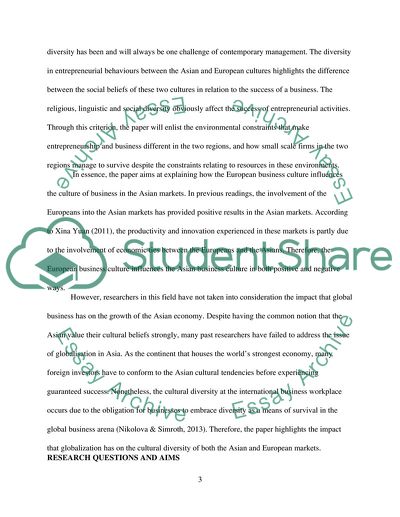Cite this document
(Does Business Culture in Europe Influence the Culture in Asia Research Paper - 1, n.d.)
Does Business Culture in Europe Influence the Culture in Asia Research Paper - 1. Retrieved from https://studentshare.org/culture/1877691-critical-thinkingdose-business-culture-in-europe-influence-the-culture-in-asian
Does Business Culture in Europe Influence the Culture in Asia Research Paper - 1. Retrieved from https://studentshare.org/culture/1877691-critical-thinkingdose-business-culture-in-europe-influence-the-culture-in-asian
(Does Business Culture in Europe Influence the Culture in Asia Research Paper - 1)
Does Business Culture in Europe Influence the Culture in Asia Research Paper - 1. https://studentshare.org/culture/1877691-critical-thinkingdose-business-culture-in-europe-influence-the-culture-in-asian.
Does Business Culture in Europe Influence the Culture in Asia Research Paper - 1. https://studentshare.org/culture/1877691-critical-thinkingdose-business-culture-in-europe-influence-the-culture-in-asian.
“Does Business Culture in Europe Influence the Culture in Asia Research Paper - 1”, n.d. https://studentshare.org/culture/1877691-critical-thinkingdose-business-culture-in-europe-influence-the-culture-in-asian.


